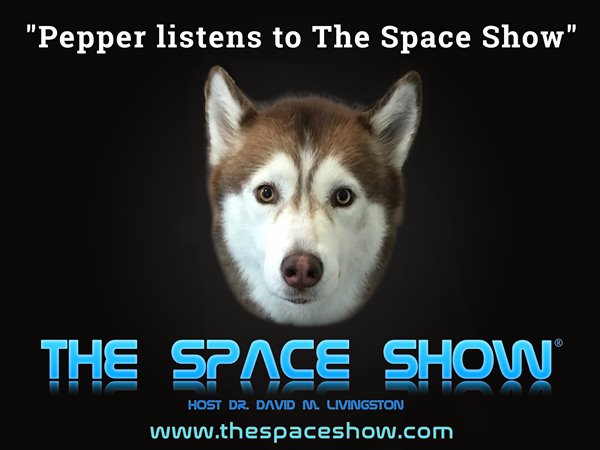Guest: Dr. John McGowan. Topics: Trial and error testing for advancing technology and cheap access to space. Dr. John McGowan was our guest today to talk about his two recent Space Review articles, "Cheap Access to space: Lessons from past breakthroughs" dated May 11, 2009 and located at www.thespacereview.com/article/1368/1 along with "Can the private sector make a breakthrough in space access?" This article was dated June 8, 2009 and can be found at www.thespacereview.com/article/1388/1. During Segment 1, Dr. McGowan put forth his thesis which is that we should learn from past lessons with advancing technology and do lots more trial and error flight testing to lower the cost of space access. During this segment, Dr. McGowan cited many examples of this from railroads to the Wright Brothers and Octave Chanute, as well as James Watt and the steam engine. You will certainly want to hear his analysis of these various technologies and how they were perfected and modernized through trial and error testing, then listen to how Dr. McGowan extrapolates from then to now. Toward the end of the first segment, the discussion focused on the public perception of small versus large rocket payloads, missions, and progress. This discussion was fueled by questions and a call from Charles Pooley of www.microlaunchers.com earlier in the show. In Segment 2, John picked up on the theme from the end of the first segment regarding public perception and the role of the general public which was thought to be not that important in lowering the cost of space access. In this segment, John talked about the number of flight tests for various rocket technologies such as those by Goddard which totaled 58 flights, the V2 with 157 flight tests before bombing England with them in WW2, and the X-15 with 199 test flights. We talked about today's computer modeling and simulation programs to minimize costly flight tests and suggested that due to the high costs involved, it might be that large quantities of flight tests are prohibitively expensive. Dr. McGowan stated that we should be starting small and ramping up. Marshall from Dallas brought up the Jevons Paradox/Effect and just before the end of this segment, risk taking entered into the discussion. As we launched into Segment 3, we talked about risk taking some more and I asked how we get more trial and error flight testing into the development and building of rocket systems. Listeners asked if the private sector could do this more easily than the public sector and they asked if breakthrough technologies were really needed to obtain low cost space access. Here, Dr. McGowan brought us back to the steamboat example of what constitutes commercial and referred the 1790 Fitch steamboat versus the first commercially successful steamboat in the U.S. by Robert Fulton. As John pointed out, Fulton found a market with pain in it (listen to the discussion) and then solved the problem with his steamboat transportation. In applying lessons from the past, we explored commercial and civil space for markets with pain in them and for a way to solve the problem by eliminating the pain. We could not think of any comparable markets for commercial space at this time. If you have questions or comments for Dr. John McGowan regarding this show or his Space Review articles, please email him at jmcgowan11@earthlink.net.
Broadcast 1196 (Special Edition)
<none>
WARNING: Using Disqus Comments on the Space Show:
To ensure your comments do NOT get caught in the Disqus automatic spam filter system, please login to your Disqus account or create a verified/approved Disqus account.
Posting multiple URL links WILL TRIGGER the Disqus automatic spam filter system.
<none>

Support the Space Show ®
If you prefer donating with a check, please make the check payable to One Giant Leap Foundation. Mail it to One Giant Leap Foundation, 11035 Lavender Hill Drive Ste. 160-306 Las Vegas ,NV 89135
Follow us on Facebook
Broadcast Schedule
Sunday: 12:00 - 1:30 PM (PT)
Monday: 2:00 - 3:30 PM (PT)
Tuesday: 7:00 - 8:30 PM (PT)
Friday: 9:30 - 11:00 AM (PT)
Other weekday times can be morning , afternoon, or evening as you will see from the program schedule below. When you see Wednesday or Thursday program options, it is because of my travel schedule and I am adding in special shows at the time chosen by the guest. The John Batchelor Hotel Mars segment is always Wednesday, 6:30-6:45 PM Pacific Time. All Hotel Mars shows are archived as Space Show programs.
Dr. Livingston Business Consulting & Speaking Opportunities
Dr. David Livingston is available for business consulting and speaking engagements. Please contact him for specifics. You can reach Dr. Livingston by email at drspace@thespaceshow.com or (415) 455-9076.
<none>
© Copyright 2017 Dr. David M Livingston & One Giant Leap Foundation All rights reserved. No part of Space Show audio and video programs may be reproduced, distributed, or transmitted in any form or by any means, including but not limited to photocopying, recording, edits, transcripts, website uploads, including YouTube or other electronic or mechanical methods, except in the case of brief quotations embodied in critical reviews and certain other noncommercial uses permitted by Fair Use under 17 U.S.C. § 107, without the prior written permission of One Giant Leap Foundation. For permission requests, write to Dr. David M. Livingston, The Space Show, 11035 Lavender Hill Drive, Ste. 160-306, Las Vegas, NV 89135 USA.
About TSS
The Space Show® wants to provide you with timely and relevant information on space issues and policy influencing the development of outer-space commerce, space tourism, exploration, planetary science, as well as other related space subjects of interest to us all.
Contact Us
The Space Show
C/O Dr. David Livingston
11035 Lavender Hill Drive
Ste. 160-306
Las Vegas, NV 89135
OFFICE TEL: 1-702-268-8743
LIVE SHOW TOLL FREE: 1-866-687-7223
EMAIL: drspace@thespaceshow.com
<none>







 The Space Show
The Space Show



